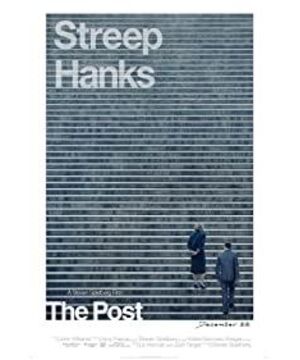I didn't fall asleep!
The storyline is fairly compact, and there is not much extra foreshadowing. I saw the preview earlier and felt that it was a very politically correct Olympic film under the banner of press freedom (indeed, it was also an Olympic attack under the banner of press freedom). film....) But more than halfway through the plot, I found that the flag of feminism was gradually rising. Several seemingly deliberate short clips actually connected the branch (main?) line of feminism in the context of advocating freedom of the press. . Aunt Mei calmly but uneasy expresses the embarrassing status of female business leaders in the United States in the 1970s: You are still a weak woman among men; as a boss, when you open a shareholders meeting, everyone almost ignores you. On the other hand, once you leave When you enter the housewife circle, you become a big man again. Of course, the feminist routine is still clear to everyone. If you lose your husband in middle age, your dream of having a husband and raising children at home is shattered, and you have to take over the family business. It's new, but what deserves praise is that Director Stu didn't match it with a vulgar montage or flashback of the previous situation, but chose to cover it in a few long dialogues, which not only promoted women's rights It's not too hypocritical.
The story is based on real history, and everyone knows that Aunt May and the others will win the case. Then the Washington Post gradually grew, and Kay became the first Fortune 500 female CEO or something. So when Aunt May everyone When I walked out of the courthouse, I thought it was time for the feminist orgasm, and the preparations were done! First cut the camera to the New York Times (male figure) while creating a sense of pressure for the next second victory speech, and then send a large group of women whose eyes are full of admiration for Aunt May that is about to overflow. About to fall into the clichéd ending of a strong woman delivering an uplifting and tearful speech.
In the end, there was no speech, and Aunt May walked away silently. The camera pulled back to the newspaper being typeset, giving the High Court, victory, and press freedom one feature after another, instantly pulling the audience back from a politically correct story. Another politically correct story. I think it is commendable that the director can tell this story with the political correctness label in a smooth and smooth manner, and at the same time he can tell the two major themes (two big flags) and dance like water. There is no conflict with each other. Director Sita and Aunt May are both good standard bearers. But there are also disadvantages. Two such large themes are packed into one film and at the same time they have to take into account the artistic appeal. The result is that both themes feel the same. It was a few times until it stopped, and then I hurriedly left the field to make way for the other party
... er... As for Lao Tang... Although Lao Tang is the male protagonist... But I feel that the camera sense is not as good as Sarah Paulson's. what's going on...
View more about The Post reviews











